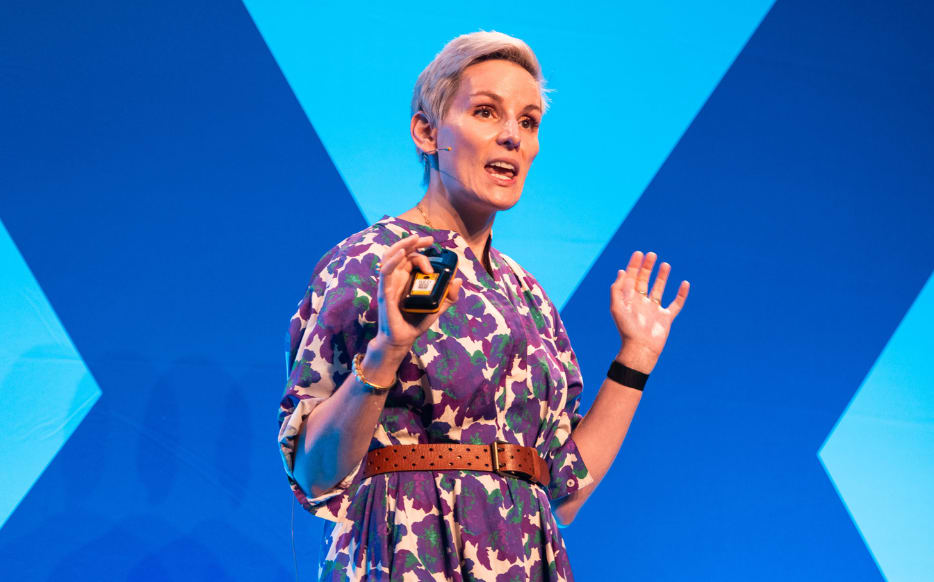You have 1 article left to read this month before you need to register a free LeadDev.com account.
Estimated reading time: 13 minutes
LeadDev’s AI Impact Report 2025 highlights growing uncertainty for junior developers as AI takes over routine coding tasks.
The emergence of AI-powered coding assistants, coupled with a tightening job market, is prompting difficult questions about the future for early-career developers.
Since ChatGPT’s debut in November 2022, generative AI has transformed how software is written and taught, taking over repetitive tasks such as fixing bugs, updating minor features, and performing ongoing maintenance.
While automating these tasks offers clear benefits for engineers, it also raises serious concerns about skill development and career progression for those just starting out.
When looking at top-line hiring estimates, LeadDev’s AI Impact Report 2025 found that 12% of respondents expected an overall workforce reduction, and 18% expect fewer junior hires over the next 12 months. This is compared with 10% anticipating fewer senior engineer hires.
Over the longer term, 54% felt that the adoption of AI coding tools would reduce hiring for junior developers.
Why? When it comes to industry sentiment, we see companies treating AI assistants as if it were a junior dev. “The work that AI can do is similar to what an entry-level engineer can do,” said Meri Williams, CTO at Pleo.
VP of digital strategy and innovation at Hidden Brains, Chirag Harshadbhai Patel, observed in his blog post that “AI is quietly moving from being an assistant to substitute (especially for junior roles). If AI is doing what juniors used to do, who will become the seniors of tomorrow?” he wrote.
Your inbox, upgraded.
Receive weekly engineering insights to level up your leadership approach.
Expectations for a junior dev
For those who do land roles, LeadDev’s AI Impact Report 2025 revealed that 37% of respondents predict increased workloads for junior engineers and 39% anticipate faster turnaround expectations with tasks, as AI becomes more embedded in workflows.
Jeff Watkins, CTO of CreateFuture argues that junior developer roles are changing rapidly as they become “AI-assisted in their roles.” Watkins draws parallels between current adopter trends and those who resisted IntelliSense or visual IDEs – making the point that those who initially opposed the move eventually adapted.
He suggests the field will become even more interdisciplinary, pointing to examples like Intercom, where “all of their designers [are] contributing 100% to the code base.”
At Intercom, designers are increasingly taking on coding responsibilities, using AI tools and development frameworks like React to write production code, rapidly prototype, and implement design solutions without relying solely on engineers.
This shift, he says, doesn’t mean designers or AI will solve “really hard stuff, like complex back-end algorithms,” but that the traditional handoff from design to engineering is eroding.
Watkins adds that “pure” front-end developers might face new pressures since AI can already handle much of HTML, CSS, and JavaScript. In contrast, back-end work remains much more complex and less immediately automatable, Watkins explained.
As AI advances, he muses, “Imagine being a junior front-end engineer, pure front-end, just creating JavaScript, CSS, and HTML. I don’t think that’s gonna be very attractive for much longer.
“Learning to work with AI, that’s going to be table stakes,” Watkins argues.
AI teachers
More like this
With the rise of AI adoptions, we could see junior developers using AI to get up to speed with core skills faster, in place of human mentors to learn more independently.
According to the AI Impact Report 2025, 38% of respondents agreed with the statement that “AI tools have reduced the amount of direct mentoring junior engineers receive from senior engineers.”
Yet all is not lost. 27% of respondents see a potential for AI to improve the learning of new skills.
Williams noted that AI can serve as an “endlessly patient mentor,” which is particularly valuable for entry-level engineers.
They explained that juniors are increasingly relying on AI for guidance, while some senior engineers, having not adopted AI tools, are less equipped to advise others on AI-assisted development.
Watkins added that the benefits for early-career devs don’t just lie with coding. He said, “Imagine an AI tutor, always on, critiquing your code, giving advice. This could improve all walks of life. Coding is easier to monitor than management tasks, which are more ephemeral.”
He sees AI not just as a tool for professionals, but also as a tutor for learners. In his view, AI could provide real-time feedback, personalized support, and even help break down complex concepts for beginners.
That’s why he believes it should be incorporated into platforms like Coursera to make coding education more accessible and adaptive.
More education needed
For junior developers to thrive, working with AI tools and understanding its disadvantages will be essential skills, provided they have a solid foundation and proper training in its responsible use.
Williams points out that engineers no longer pick up core technical skills automatically through their day-to-day work – the nature of that work has changed.
They also note that many engineers haven’t formally studied computer science – and with the industry moving away from requiring that background, combined with the growing number of people entering from nontraditional paths, the gap in foundational training is even more pronounced.
Williams further added that this is all the more pronounced with the current gap we have in AI education, given the fact that universities offer limited coverage of AI assistance.
As a result, Williams argues that the industry now needs to “actively teach those skills more than we used to” as part of the job training.
Watkins agrees with Williams’ sentiments, saying, “Working with AI will become more important as a skill. And that should be taught. Everybody should be taught to work [with it] safely.”

London • June 2 & 3, 2026
LDX3 London agenda is live! 🎉
Watkins concluded: “People have to be more rounded. You can’t just be a geek who codes anymore.”





